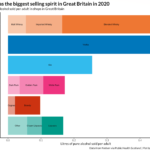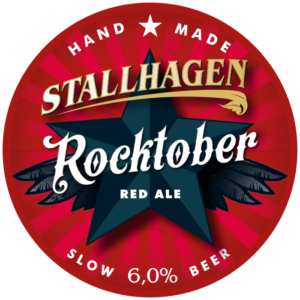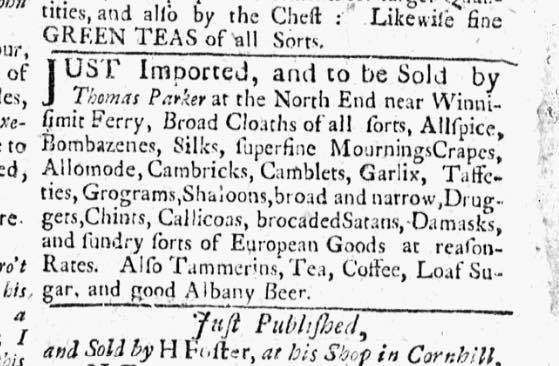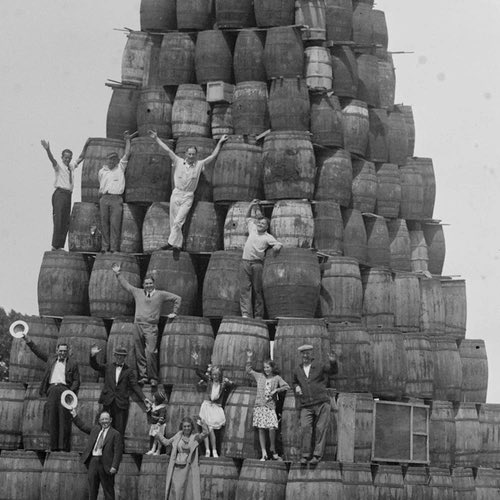 We are already at a mid-point. But there are plenty of them to do around. Pick one point and then another? You’ve created a mid-point. I saw this image from a late 1960s airport or train station waiting area. I remember these at the Halifax airport, coin operated TV chairs. Some sort of mid-point going on. With ashtrays. We are at another now. Mid-January.
We are already at a mid-point. But there are plenty of them to do around. Pick one point and then another? You’ve created a mid-point. I saw this image from a late 1960s airport or train station waiting area. I remember these at the Halifax airport, coin operated TV chairs. Some sort of mid-point going on. With ashtrays. We are at another now. Mid-January.
This bit of beer business news has every member of the semi-pro beer chattering class without experience in business* scratching their heads:
Molson Coors Beverage Company said today it will stop production of its Saint Archer brand and sell its San Diego-based brewery and taproom to Kings & Convicts Brewing Co., which owns the Ballast Point brand.
As I reported… relayed… poached from Josh Noel in the Chicago Tribune, back in December 2019 Kings & Convicts, an apparently tiny craft brewery in Illinois bought one time mega-brand Ballast Point. The purchase was made with a bucket of moolah earned from a hospitality asset sale by K&C principal Brendan Watters in 2015 along with input from other friendly and wealthy investors including wine magnate Richard Mahoney. These brewery buys at pennies on the dollar are no doubt a doddle for folk at that level.
In another sector aimed at making the moolah, the sad news has been reported by Jaime Jurado that something called the Adult Non-Alcoholic Beverage Association has been created. A concept which seems to put the moron in oxymoron. As it is not about beer, it shall never be referenced again – except when someone mentions “neo-prohibitionists” again. Then I can say:
What? You mean the ANBA?
Best NA-NF quote of the week? This:
Price is an issue. Not sure how I’ll feel about that once work isn’t paying for the beers.
What? Govern the opening of your wallet accordingly, I suppose. Spare a measure of salt when reading review by those who get the freebies. Next fad to return? Temperance bars. As noted by Martin, the mastheadless blog Evo Boozy Scribbler discussed a variation on that theme:
I have nothing but disdain for booze free curry houses. Having a pint of Cobra is part of the experience. I don’t take my own roast potatoes to a carvery.
Well, it’s part of your experience. Why can’t people on the beer imagine that there is a world where being people on the beer is not considered the height of civilization’s progress? I rarely have been with my curry but, then again, I equate it with family meals, not piss ups.
Speaking of food and beer, this is an interesting argument from Zambia related to food security:
Well, if we are talking about food security, perhaps we could start by checking the quantity of maize going into beer before we think of suspending meagre exports of less than a million tonnes because if this info could be true, it could mean us who drink chibuku, ‘eat’ more mealie meal in three months than what the whole country uses in a year! Mwaimvela kanongobilitina skopodicious, ka? But not everything is bad about opaque beer, “…it gives you 13.1% of body energy when you drink,” my friend told me.
Changing course, a high honour and one I agree with entirely was bestowed by Garrett Oliver this week after listening to Matt Curtis interviewed by the two folk at BeerEdge recently:
I don’t really follow the beer press; as a producer it sometimes feels grubby and unseemly to do so. But I will say that this interview put a lump in my throat more than once and made me switch my mental hat to “writer/journo”. We do need actual journalists. Glad of these folks.
Through this troubled world of everything from PR puff to academic research, it is good to note how much quality there actually is – as I get to do each week. While a sort of drinks writing is a narrative with no greater arc, writing attracted to novelty (or even whatever it is that has briefly twitched… right over there, do you see it?) we see another relatively recent aspect of this is how good beer writing is developing and unfolding is the phenomenon of people writing about serious issues faced in life – from humanity’s injustices to the deeply personal – seen through the lens of something somehow related to beer. On excellent example this week was provided by Jonathon Hamilton in Pellicle:
This time last year I wrote my first essay for Pellicle. It was, like this, a self-reflective piece about the beginnings of the magazine, alongside my own struggles with mental health, imposter syndrome and a sense of belonging. Putting myself out there in such a way was one of the most difficult things I’d ever had to do, and I would love to tell you all how it immediately changed me for the better. Unfortunately, it did not.
Similarly, note bene the bene noted:
It’s true that the total number of blogs has declined over the past decade, but the number of good blogs has never been higher. Moreover, they fill a role that would otherwise be left vacant. Beer is little-covered by newspapers and magazines, and often merely superficially. No one is going to print one of Ron Pattinson’s lists of 19th century grists in the Wall Street Journal. Social media is great for opinion and linking, but not much else. Imagine Lars trying to present one of his enthnographies on Twitter. Larger, more ambitious projects like Craft Beer & Brewing and Good Beer Hunting are doing fantastic work and I don’t want to diminish their effort. But blogs are still critical in the media ecosystem—and, given the anemic state of print journalism and the increasingly toxic nature of social media, more important than ever.
Hooray and happy sixteenth beer bloggaversary, Jeff!
There was a sad sighting of another of a bit of a failed PR initiatives this week: Tryannuary. How 2015. How could they have known that a global pandemic would raise general concerns about personal health?
In Scotland a wonderful protest was seen this week in Dundee, where the King of Islington, a Dundee pub was suddenly closed without warning and then suddenly reopened without warning:
Staff at a Dundee bar at the centre of Covid-19 cover-up claims have been told to return to work this week following a sudden closure. The King of Islington pub shut on Saturday with upper management blaming “massively reduced trade levels” due to the “promotion of unsubstantiated claims” in a union-backed grievance letter from staff. Kieron Kelleher, assistant manager at the Union Street venue, accused pub chain operators Macmerry300 of victimising staff who spoke out.
Protests had also been held at pubs owned by the same chain in Glasgow as events unfolded. As a child of a child of the Red Clyde, I got all verklempt.
 This week’s Tufte Award for Best Visual Display of Quantitative Information goes to… a chart that explains what we know as “hard liquor” in Canada but described as spirits in the Old Country. It is from Colin Angus using data from Public Health Scotland who first ran a poll, most people guessing gin would be #1 rather than the bronze medal winner. Well down the list but still – who is drinking all that brandy?
This week’s Tufte Award for Best Visual Display of Quantitative Information goes to… a chart that explains what we know as “hard liquor” in Canada but described as spirits in the Old Country. It is from Colin Angus using data from Public Health Scotland who first ran a poll, most people guessing gin would be #1 rather than the bronze medal winner. Well down the list but still – who is drinking all that brandy?
The Canadian Beer Cup is off. Now… calm down. Breathe. I am sure it was a big deal in your household, too, but the reason for the cancellation is… singular and real:
…guidelines announced last week by the Ontario Government in response to the rapid surge in cases of the Omicron variant limit indoor gatherings to a maximum of five people, making it impossible for in-person judging to take place at this time. “One of the goals of The Canada Beer Cup is to showcase the greatness of Canadian breweries to the world,” said Rick Dalmazzi, Executive Director of the Canadian Craft Brewing Association, in a statement. “With all due respect to the many fine Toronto and Southern Ontario judges who will be involved, we want to do everything in our power to also include the many international and cross-Canada judges who have committed to our event.”
In plain language, there was clearly a large aspect of this that was a Toronto tourism event bringing in judges who were also newspaper columnists and consultants to retailer, etc.** (One need not take that statement above in the cancellation notice to suggest that while Canadian beer may be underrated, well, our own Ontarian beer judges are somehow overrated.) Now… how to transition and stay within the overall goals. As happened in the World Beer Cup (whatever that is when it is not the World Beer Awards), beer submissions will be poured. What does a next step look like? Apparently the Greek Cup of Beer or the Greek Beer Cup or the Greek Beer Awards was not so needy of auslander praise as they also just mailed out the samples to the usuals. As did the World Beer Awards. Something will occur. I just hope that there are government grants that buffer all this, that cover the unexpected stranded costs that demobilization and remobilization incurs. Stranded costs are a killer.
Non-beer recommendation of the week: follow AndyBTravels. He’s train fan who runs a Travel Architect Service. He also wanders around remote parts of places like rural Romania where this week he captured some desolate spots and also some gorgeous moments.
That’s it for now. For more check out the updates from Boak and Bailey mostly every Saturday and from Stan every Monday, plus more with the weekly Beer Ladies Podcast, and at the weekly OCBG Podcast on Tuesday and sometimes on a Friday posts at The Fizz as well. There is a monthly sort of round up at The Glass. (Or is that dead now?) There is more from the DaftAboutCraft podcast, too. And the Beervana podcast. And sign up for Katie’s irregular newsletter, The Gulp, too (… back this week!) And check out the Atlantic Canada Beer Blog‘s weekly roundup. Plus follow the venerable Full Pint podcast. And Fermentation Radio with Emma Inch. The AfroBeerChick podcast as well! And also look at Brewsround and Cabin Fever. And Ben has his own podcast, Beer and Badword (which I hope is revived soon…) And remember BeerEdge, too, and The Moon Under Water.
*pretty much all of them.
**we should be honest about how these things really work.














